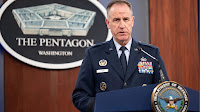In a meeting between the Head of the Iran Chamber of
Commerce, Industries, Mines, and Agriculture (ICCIMA) Samad Hassanzadeh and
Pakistani Ambassador to Iran Muhammad Mudassir Tipu in Tehran in late June, the
officials stressed the need for Iran and Pakistan to exercise barter trade and
free trade to materialize a US$10 billion trade target.
During a meeting between Atabak and Pakistan’s Federal
Minister for Commerce Jam Kamal Khan in mid-October, the two sides discussed
trade ties between the two countries, with both agreeing that economic
exchanges should be promoted further.
The two ministers met in Pakistan’s capital Islamabad on the
sidelines of the 23rd meeting of the Council of Heads of Government of the
Shanghai Cooperation Organization (SCO).
Atabak told IRNA that he and the Pakistani minister
discussed trade ties between the two countries and agreed to hold further talks
in order to explore ways to remove obstacles to the promotion of bilateral
trade.
“Considering the historical and cultural commonalities of
the two countries, we should take advantage of the strong potentials to expand
trade exchanges between Iran and Pakistan,” the minister stated.
He also said that he invited Kamal Khan to visit the Islamic
Republic.
According to the official, the necessary measures will be
taken to prepare an agreement to be signed between the two countries during the
visit of the Pakistani minister to Iran.
He stated that the current amount of trade exchanges between
the two countries is not acceptable from the point of view of both Iran and
Pakistan, and considering the strong relations and common links of the two
countries, the two sides are confident that they will be able to increase the
volume of trade exchanges several times.
The Pakistani minister spoke with IRNA as well. He described
his talks with the Iranian minister as constructive, and said that visiting
Iran is on agenda of his plans.
“We had good talks with my Iranian counterpart and reached
constructive agreements, and we believe that there are many remaining tasks
that the two countries are determined to pursue,” he said.
In mid-July, the 11th meeting of the Joint Border Trade
Committee of Iran and Pakistan opened in the southeastern Iranian city of
Zahedan, where the two sides pursue the increase of bilateral trade to US$10
billion per annum.
Pakistan's Ambassador to Iran Muhammad Mudassir Tipu, who
attended the meeting online, announced that Iranian and Pakistani delegations
are scheduled to discuss the mechanism to increase mutual trade.
The Islamic Republic of Iran's consul general in Quetta,
Pakistan's consul general in Zahedan, and other senior officials of
Sistan-Baluchestan province took part in the meeting.
Such joint meetings are held to pave the way for reviewing
obstacles, removing barriers, and developing trade and economic relations
between the two friendly and neighboring countries.
The two sides make the necessary coordination to help
improve trade and economic ties, exchange economic delegations, organize joint
exhibitions, attract bilateral investment, and establish joint industrial
centers and retail markets.
The head of the Pakistani delegation to the 11th meeting of
the Joint Border Trade Committee said that Islamabad strongly supports the
development of joint markets and investment, which can increase the level of
trust between the two nations.
Irfan Javed added that Pakistan also calls for cooperation
in the field of transportation because it can affect the livelihood of the
people who are living in border regions.
The deputy coordinator of economic affairs of
Sistan-Baluchestan governor’s office said that Iran is keen on expanding trade
exchanges with Pakistan.






